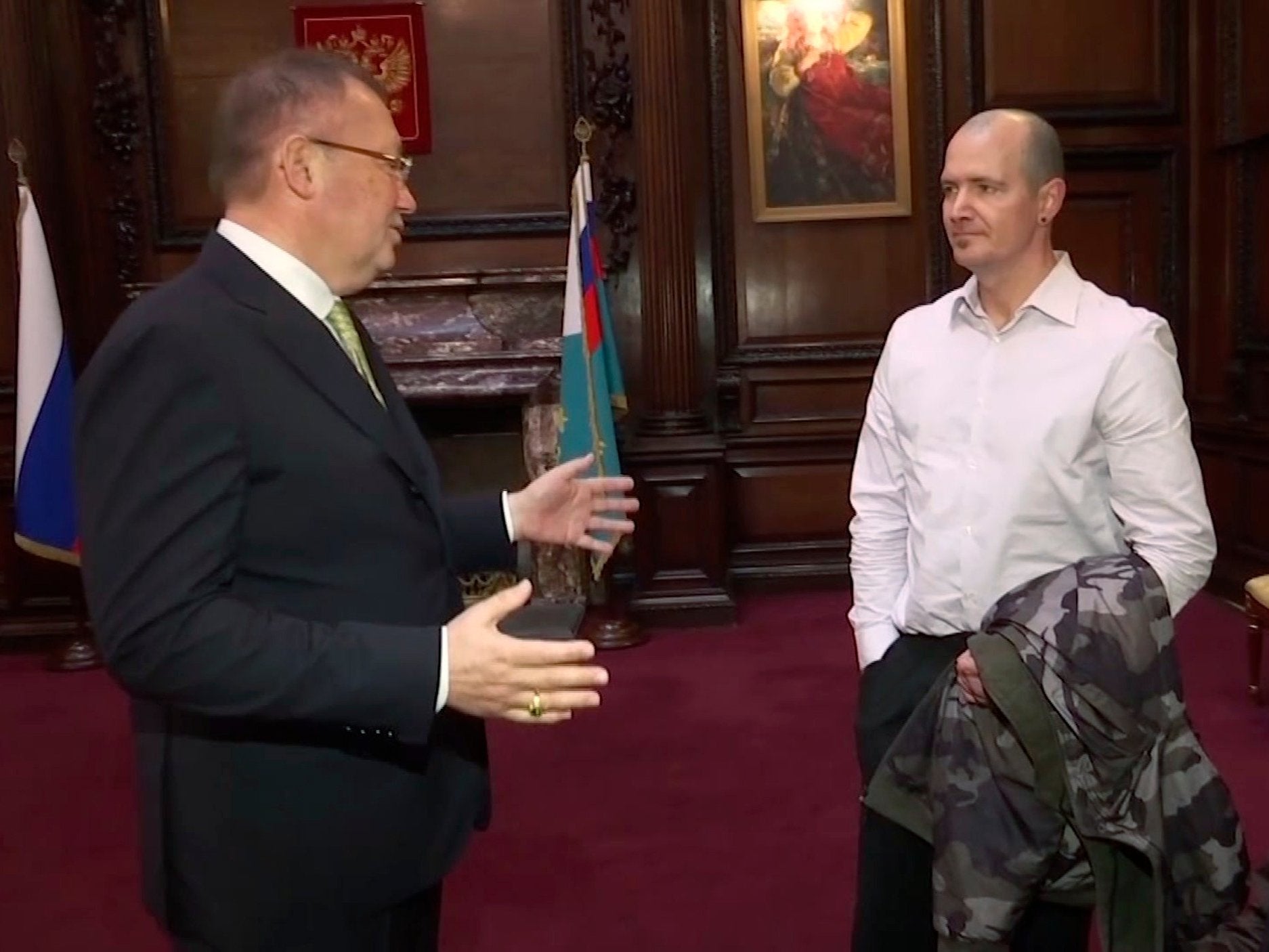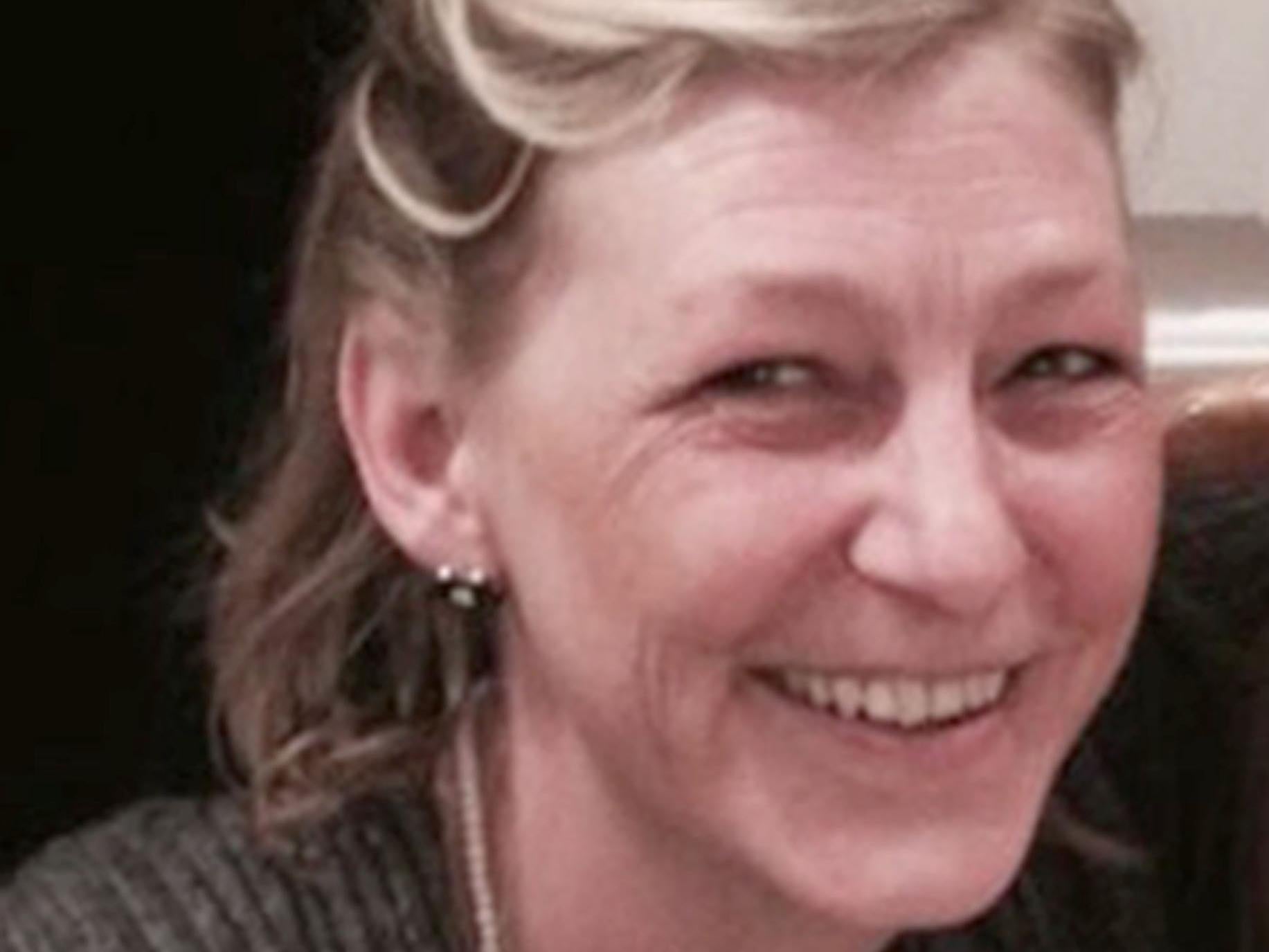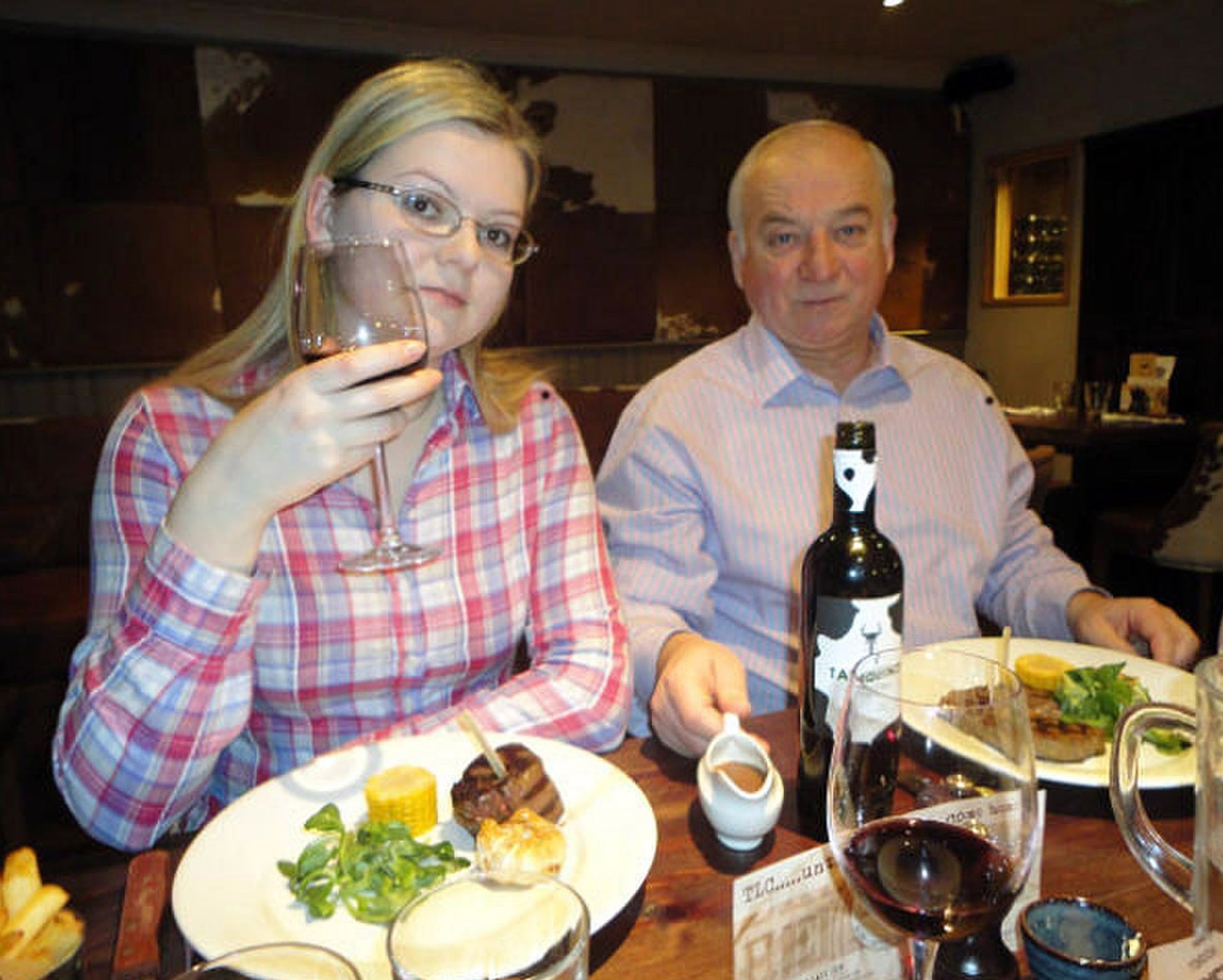Salisbury poisoning: Russian ambassador 'to arrange meeting' with Putin about nerve agent attack, novichok victim says
Survivor Charlie Rowley says Alexander Yakovenko agreed to help him ‘get to the bottom’ of the attacks

Your support helps us to tell the story
From reproductive rights to climate change to Big Tech, The Independent is on the ground when the story is developing. Whether it's investigating the financials of Elon Musk's pro-Trump PAC or producing our latest documentary, 'The A Word', which shines a light on the American women fighting for reproductive rights, we know how important it is to parse out the facts from the messaging.
At such a critical moment in US history, we need reporters on the ground. Your donation allows us to keep sending journalists to speak to both sides of the story.
The Independent is trusted by Americans across the entire political spectrum. And unlike many other quality news outlets, we choose not to lock Americans out of our reporting and analysis with paywalls. We believe quality journalism should be available to everyone, paid for by those who can afford it.
Your support makes all the difference.Russia’s ambassador in London has agreed to try to arrange a meeting with Vladimir Putin to help him “get to the bottom” of the Salisbury poisonings, according to novichok victim Charlie Rowley.
Mr Rowley had a 90-minute discussion with Alexander Yakovenko but told the Sunday Mirror he “didn’t really get any answers” about the death of his partner Dawn Sturgess.
The pair were exposed to the same nerve agent used to attack ex-spy Sergei Skripal and his daughter Yulia in March last year.
Mr Rowley and Ms Sturgess, 44, fell ill in Amesbury months later after coming into contact with a perfume bottle believed to have been used in the poisonings and then discarded.
Ms Sturgess died in hospital in July.
The 45-year-old told BBC Radio Wiltshire he wanted to meet the Russian president to “get to the bottom of things”.
He said: “That would be great, I’d like to see him, get some face-to-face and ask him on a one-to-one basis, just sort of tick it off the list, say I’ve done it.”

Asked if the question of meeting Mr Putin had arisen during his meeting with the Russian ambassador, he said: “It did. He did say he’s going to try and push forward, try and get some results, get back in contact with my brother.”
His brother Matthew added: “He couldn’t say yes or no, but said if he was to say yes, where would you like to meet, and I said on our behalf it would be better on his own home turf, in Russia, and he said he would try and organise it for us.”
Mr Rowley told the radio station that an apology “would be great” but that he could not see Mr Putin “taking the blame”.

He also said the ambassador had said Russia might be able to find him a private doctor to address his ongoing health concerns.
Speaking to the Sunday Mirror after the meeting, Mr Yakovenko said he and Mr Rowley were “on the same page” and wanted to see a report into the investigation published.
“It is important for Russia, but also for Charlie Rowley,” he said.
“I’ve seen a normal person who has really suffered a lot and who has suffered a tragedy in his life. If he asked for it, I would give him support.”
In September, Scotland Yard and the Crown Prosecution Service said there was sufficient evidence to charge two Russians - known by their aliases Alexander Petrov and Ruslan Boshirov - with offences including conspiracy to murder over the Salisbury nerve agent attack.
Join our commenting forum
Join thought-provoking conversations, follow other Independent readers and see their replies
Comments